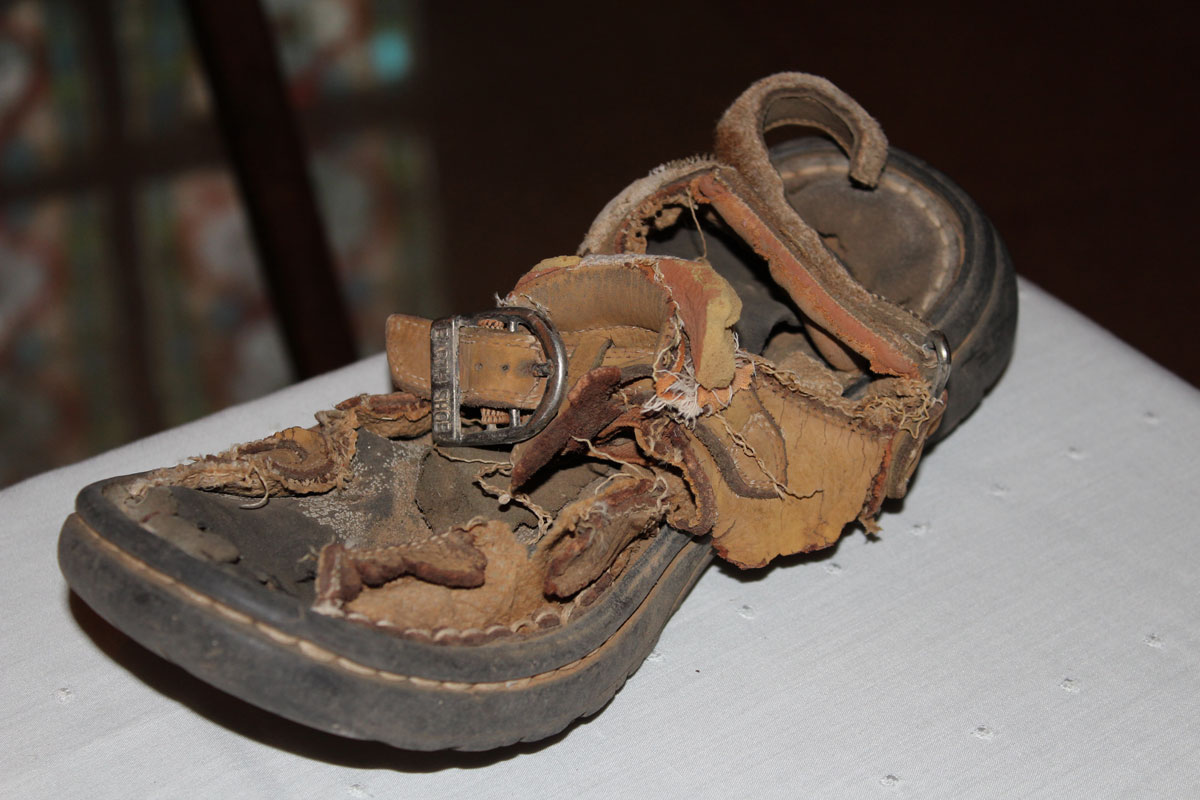We Are One on a Migrant Journey
share
topics
By Sister Kathleen Erickson
“I believe the people of North America have a great role to play in the survival of the world. They have a capacity for passion when they realize the truth, but are stuck right now in a big cloud of disinformation. It will take super-human effort to break through … so many things separate us from being one.” -Michelle Najlis, Nicaraguan poet, to a Witness for Peace group from the United States, 1985
I worked at the U.S.-Mexico border for 18 years, spent time in Latin America, served two months as interim chaplain in the South Texas “Family Residential Center” and visited hundreds of detained immigrants in a federal detention center and a county jail.
As you read this, millions of people have no home on Earth. Refugees are fleeing war, living in camps, drowning as they try to get to any country that will still accept them. Violence is escalating, and fear grows.
Do you sometimes feel sorrow in your very being, as I do? Do you grapple with your own comfort, realize guilt is not the answer, and wonder what is?
In the United States, thousands of immigrant families are separated, and mothers and fathers fight despair in prisons, county jails and detention centers. More than once, sitting across from someone who cannot stop crying has flooded my soul with the realization: their despair is my despair. Immigrants are us. The journey of refugees haunts us.
It is a discouraging time for people who care about immigrants and refugees. Continued efforts don’t seem to penetrate the oblivion of our society. Fear and xenophobia block the truth that most immigrants and refugees are fleeing uncontrollable levels of war, murder, rape, domestic abuse and gang-related violence that should serve as the basis for legal protection under U.S. asylum and refugee law.

I visit Sandra in jail and she pours out her worry about her nieces in San Pedro Sula, Honduras. They are reaching the age when gangs begin to take notice. Her brother doesn’t have money to get them out of the country. The next week she tells me Teri, the 13-year-old, was brutally gang-raped and beaten. The parents are devastated, Teri needs psychological help, and Teri’s 12-year-old sister is traumatized. Sandra cries.
Presentations, action alerts, lobbying, protests and prayer vigils seem ineffective in the face of relentless demonizing of immigrants and refugees. Where are empathy and the ability to see someone else’s perspective and wonder, “What would I do if my family were in danger?” Letters to the editor decry immigrants for “breaking the law” but don’t question corporate greed or unfair structures which generate inequality.
I tell detained immigrants “You are not alone. Many of us are working on your behalf. Your strength is within. You find God within.” The desperation of people who have lost everything calls each of us to consider who we are, where we find inner strength, what we believe.
Recognizing that what each person does has an impact on the whole, how might we share our efforts and our faith journey more widely?
1. Explore what scientists, spiritual writers and theologians are articulating about oneness—ask ourselves how we can embody Teresa of Avila’s counsel that going deep enough within, one discovers the whole world; to recognize that in our time all human beings, not just exceptional “holy” ones, are called to be mystics. In his book, Untethered Soul, Michael Singer reminds us, “There is an ocean of love behind all the fear and pain.” Humanity will learn that truth together or not at all. As we evolve, we need to grapple with changes in spirituality and faith systems which separate us. We may be called to become “sacred activists,” as the mystic Andrew Harvey suggests.
2. Let’s get very specific about our collective actions. How can we sponsor refugee families in our community, or provide sanctuary for immigrants? We need to talk with one another about how difficult and complex those actions would be, and yet how needed! Can groups come together to write daily letters to local newspapers and TV stations about our concerns? Would it have an effect? Why not try and see? Taking action is empowering and leads to more action. What each of us does matters.
We who have some visibility and credibility in the wider world can give witness to oneness that includes the needs of immigrants, refugees and others in our decisions and action. We can model listening to one another without rancor and defensiveness as we realize that this is a migrant journey we are all on.
This article originally appeared in ¡Viva! Mercy.